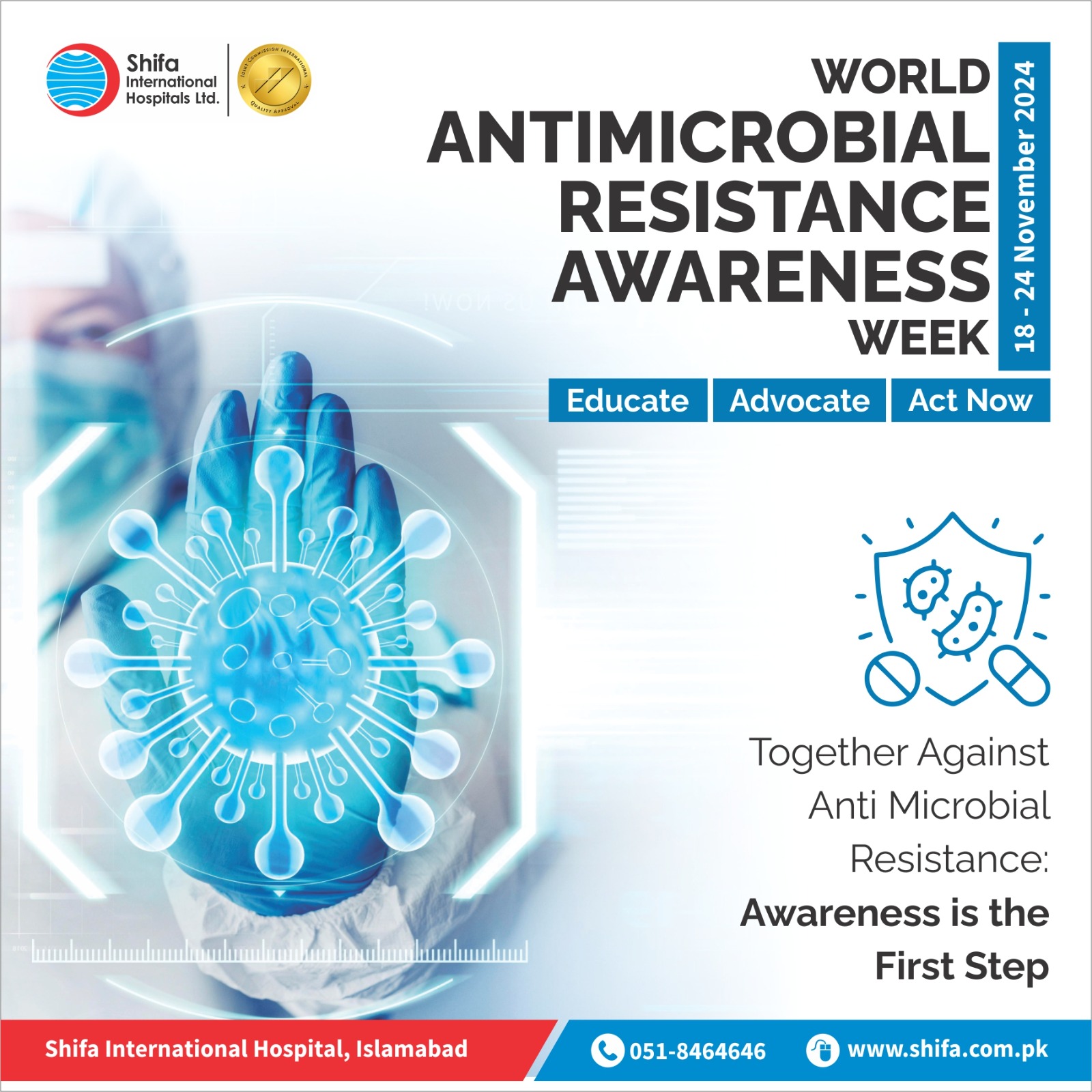A Key Message for World Antimicrobial Resistance Awareness Week (WAAW) November 18–24, 2024
Each November, World Antimicrobial Resistance Awareness Week (WAAW) provides a crucial platform to educate the public, healthcare professionals, and policymakers about the alarming threats posed by antimicrobial resistance (AMR). This annual campaign emphasizes the urgent need to tackle AMR at local, national, and global levels.
Antimicrobial resistance develops when bacteria, viruses, fungi, and parasites evolve to resist the effects of medications, rendering treatments ineffective. Overuse and misuse of antibiotics are leading contributors to this crisis. Declared one of the greatest threats to global health, AMR could potentially undo decades of medical advancements if not addressed promptly.
The theme for 2024, “Educate, Advocate, and Act Now,” places a renewed focus on coordinated action against AMR. Scientists have warned that we are approaching a “post-antibiotic era” where once-treatable infections become deadly due to the emergence of “superbugs.” Alarmingly, an estimated 700,000 deaths worldwide occur each year due to AMR. By 2050, this number could escalate to 10 million deaths annually—exceeding deaths caused by cancer—unless urgent measures are taken.
The Global Scope of AMR and Its Contributing Factors
AMR has widespread consequences, not only in healthcare but also in agriculture, animal husbandry, and food production. Overuse of antimicrobials in livestock, poultry, and aquaculture contributes significantly to the emergence of resistant strains. Contamination of food products, such as meat and milk, with drug-resistant bacteria poses a direct risk to human health.
The COVID-19 pandemic exacerbated inappropriate antibiotic use. During this period, both healthcare providers and the public frequently resorted to unnecessary use of broad-spectrum antibiotics, compounding the AMR crisis. Every inappropriate antibiotic prescription diminishes the drug’s efficacy, allowing resistant bacteria to thrive and multiply.
Pakistan is the third largest consumer of antibiotics among low- to middle-income countries. Approximately 70–90% of patients with viral upper respiratory tract infections (URTIs)—which do not require antibiotics—are prescribed them unnecessarily. This misuse has contributed to the rise of resistant infections and thousands of preventable deaths annually. Post-pandemic, the situation has worsened, threatening national and global efforts to combat AMR.
Vaccine Utilization: A Critical Strategy to Reduce AMR
Fortunately, many of the infections contributing to the AMR burden are vaccine-preventable. Vaccines have a dual benefit: they reduce the incidence of infectious diseases and minimize the need for antibiotic use, thereby curbing resistance.
In countries with widespread vaccine coverage, the incidence of diseases like pneumonia, diarrhea, otitis media, and typhoid has significantly declined. In Pakistan, vaccines against rotavirus, typhoid, pneumococcal diseases, and measles are part of the National Expanded Program on Immunization (EPI). The introduction of Typhoid Conjugate Vaccines (TCVs) has been a game changer in reducing cases of multidrug-resistant Salmonella Typhi.
Universal vaccine coverage has the potential to save countless lives. Research indicates that achieving global coverage of high-priority childhood vaccines could avert 181,500 deaths annually and prevent the spread of resistant infections. This makes expanding vaccine access a cornerstone of Pakistan’s National Action Plan for AMR.
The Need for a Collaborative Approach
Addressing AMR requires a One Health approach that integrates efforts across multiple sectors, including human health, veterinary medicine, agriculture, and environmental management. Collaborative strategies should include:
- Public Awareness Campaigns: Educating communities about the dangers of AMR and the importance of vaccines.
- Stronger Infection Control Measures: Promoting hand hygiene, safe water practices, and proper sanitation to prevent the spread of resistant bacteria.
- Regulating Antibiotic Use: Enforcing stricter guidelines for antibiotic prescriptions in humans and animals to discourage misuse.
- Expanding Vaccine Coverage: Ensuring equitable access to existing vaccines and encouraging the development of new vaccines against resistant pathogens.
Studies show that implementing these interventions could prevent over 750,000 AMR-associated deaths annually in resource-poor settings.
A Call to Action
As we observe World Antimicrobial Resistance Awareness Week 2024, let us commit to immediate action against AMR. Every individual, from healthcare workers to policymakers and the general public, has a role to play in preventing the spread of superbugs. Simple steps, such as using vaccines, practicing good hygiene, and avoiding unnecessary antibiotics, can collectively make a significant impact.
The fight against AMR is not just a medical challenge but a moral imperative to safeguard future generations. By acting today, we can avert a public health catastrophe tomorrow. Let us unite to reduce the burden of AMR and secure a healthier future for all.
Prof. Ejaz A. Khan
Department of Pediatrics and Infectious Diseases
Shifa International Hospital, Islamabad, Pakistan
Tel: +92-51-8463000
Email: ejazkhan99@hotmail.com





0 Comments